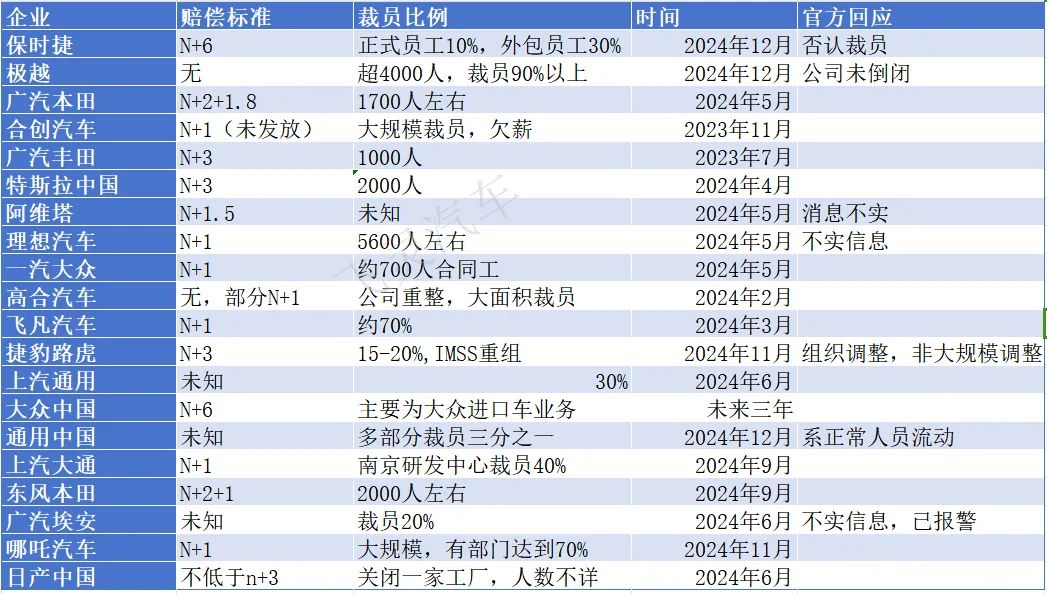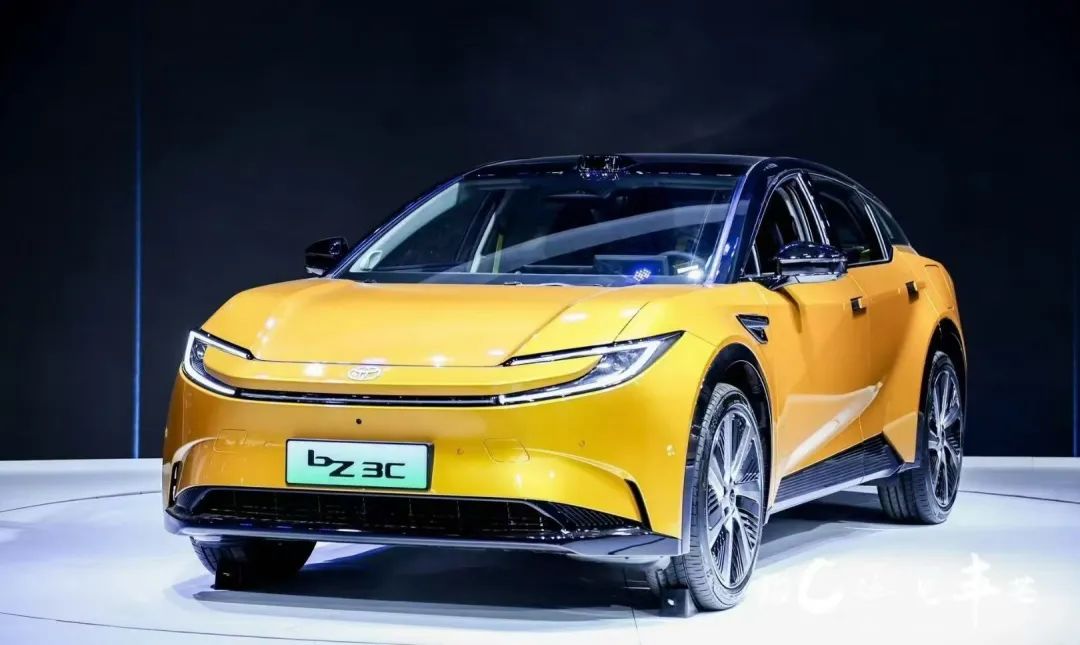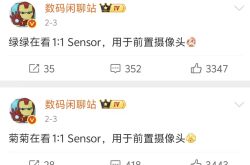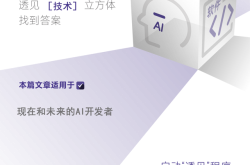2024 Auto Company Layoffs Compensation: Generous for Foreign Firms, Up to N+6! Many Emerging Players Offer No Compensation
![]() 12/18 2024
12/18 2024
![]() 461
461
On December 17, an automotive blogger reported that luxury automaker Porsche had initiated layoffs in China, impacting both permanent and outsourced employees, with potential compensation adhering to the N+6 standard. Specifically, Porsche China intended to lay off 10% of its permanent staff and 30% of its outsourced workforce. Following verification with Porsche internal personnel, several media outlets confirmed the authenticity of the situation, stating that the company planned to reduce its staff by 30%. Initially, news of Porsche's layoffs emerged on December 15 via automotive bloggers, although Porsche later denied these claims.
On the evening of December 17, Porsche China issued a statement denying online rumors that it planned to lay off 30% of its Chinese staff and the associated compensation standards. "Amidst a complex market environment, we are optimizing and reorganizing our internal structure to ensure sustained growth during the rapid industry transformation. To this end, Porsche China is continuously enhancing the efficiency of various departments and projects while optimizing costs. Based on actual circumstances, these measures may involve indirect and direct labor costs," Porsche China explained.

Compared to the layoffs at Porsche, the rumored compensation of up to 'N+6' sparked more discussions. A simple calculation reveals that, assuming a monthly salary of 30,000 yuan, an employee with three years of service could receive compensation totaling nearly 300,000 yuan. This is currently the highest known compensation standard among auto company layoffs. Previously, there were reports that Volkswagen China was laying off staff in its imported vehicle business segment with an N+6 compensation standard, but Volkswagen officials did not respond to this news.
According to a recent year-long survey by OFweek Auto on auto company layoffs, foreign auto companies offer the highest compensation standards and best practices. Following them are major independent brand manufacturers (including first-tier emerging players), which generally compensate in accordance with national standards. However, some marginal auto companies, including emerging players, often fail to provide compensation and even resort to violent mass layoffs.
Among joint-venture auto companies, Honda's layoffs in its North and South China operations this year received widespread praise, with virtually no employee complaints and even a rush among some employees to be laid off. This is attributed to the high compensation standards. For instance, Guangzhou Honda adopted a compensation plan of 'N+2+1.8', where 'N+2' represents the standard compensation ('N' for years of service and '2' for an additional two months' salary), followed by a 1.8-month bonus. According to rumors, Guangzhou Honda laid off around 1,700 employees, with many reportedly rushing to be included in the layoffs.

(Statistics based on public media reports. Please contact us for corrections if any errors are found.)
Dongfeng Honda's layoff compensation standard is N+2+1, with no upper limit on N. Besides substantial compensation, Honda also arranged a farewell ceremony for each laid-off employee, with the workshop canteen stocked with various snacks, fruits, and beverages as a final treat. Each employee also signed their names as a memento, adding depth to the ceremony. Netizens commented that Honda has shown the highest level of respect and compensation to its workforce.
Other Japanese auto companies also offer decent compensation. For example, Guangzhou Toyota provided corresponding N+1 compensation for laid-off temporary workers. Nissan recently laid off staff in China, closing a factory in Changzhou with an annual production capacity of around 130,000 vehicles, accounting for about 10% of Nissan's total production in China. However, there is no accurate information on the compensation standards for this round of layoffs, with some media reporting it to be not less than 'N+3'.
Furthermore, American companies like Tesla also offer generous compensation to laid-off employees, with a standard of N+3. Jaguar Land Rover and its joint venture Chery Jaguar Land Rover had layoffs in October this year and at the end of last year, respectively, with compensation standards generally at N+3 for both. Among them, Jaguar Land Rover integrated IMSS, resulting in personnel reduction following the merger of some positions.

As we enter 2024, competition in the automotive industry has intensified, leading to a decline in sales for many companies within the sector. From the beginning of the year to present, with the exception of a few auto companies still experiencing sales growth, almost all auto companies are laying off staff. Matching staff size to market size is a logical aspect of business development and understandable. However, many companies have resorted to violent layoffs, which is alarming.
During the era when joint-venture auto companies enjoyed robust sales, one of the goals for domestic brands to learn from joint ventures was their well-established system capabilities, corporate organizational structures, and cultures. The generous welfare systems and robust institutions of joint-venture auto companies were also key factors in attracting talent. However, as the market situation changes and joint-venture auto companies no longer dominate the market, domestic auto companies, including some emerging players, have emerged and altered the rules of the game, including changes in corporate culture and systems.
Autonomous vehicle companies are no longer learning from the systems and cultures of foreign auto companies, and 'involution' has become a pivotal term in China's automotive workplace ecology. Some netizens lament that it is only when it comes to layoff compensation that they remember they shouldn't have advocated 'driving out joint ventures'.







